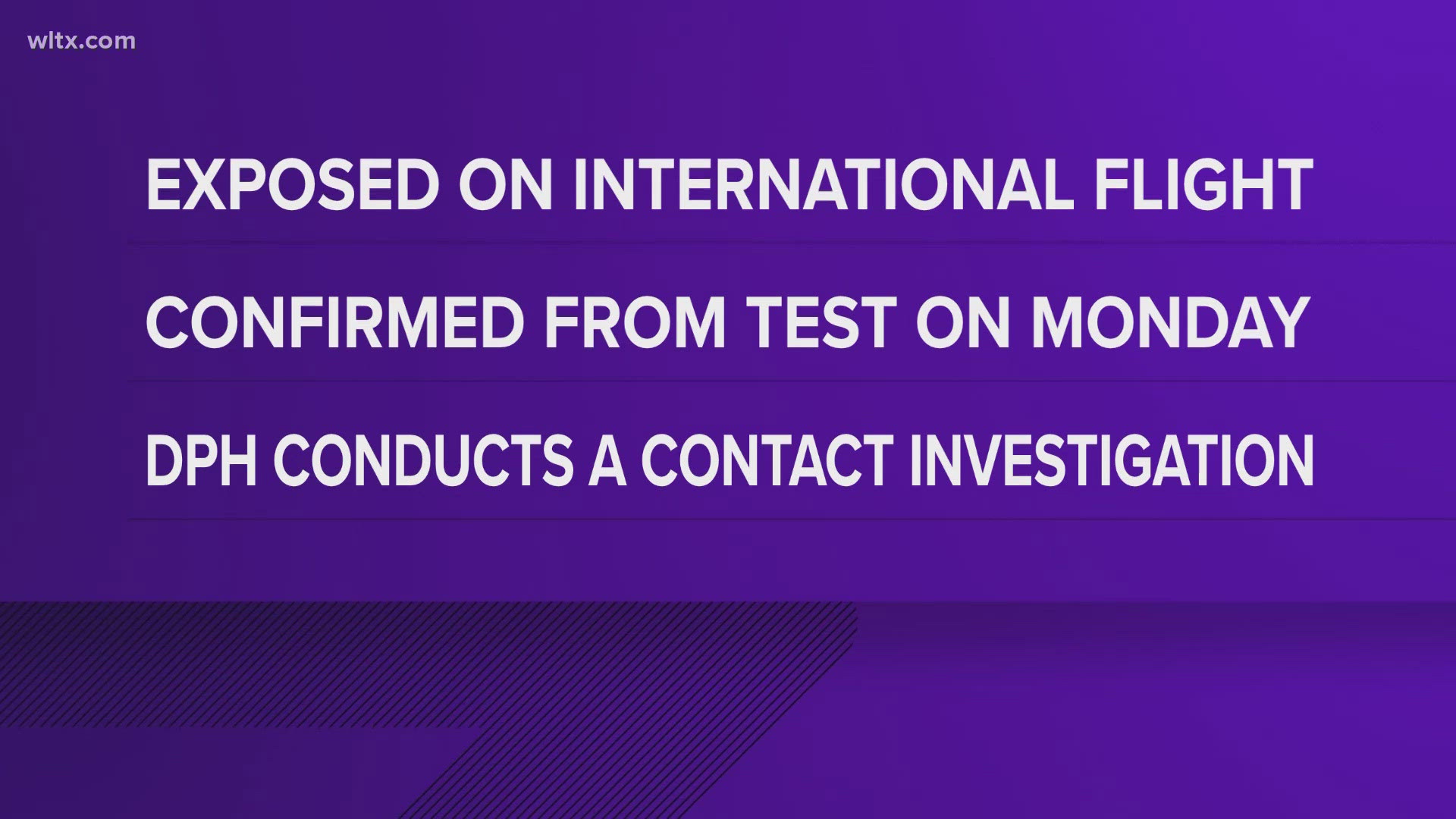COLUMBIA, S.C. — Officials confirm that a South Carolina resident contracted measles after recently completing an international flight on Thursday.
The South Carolina Department of Public Health (DPH) confirmed the case after the Centers for Disease Control and Prevention (CDC) notified it on Sept. 12 that South Carolina residents were on an international flight with a person who had measles. Test results from DPH's laboratory on Sept. 16 confirmed the case, and DPH is in the process of notifying people who may have been exposed.
“Measles is a highly contagious and serious disease caused by a virus that affects the respiratory tract,” said Dr. Linda Bell, DPH’s state epidemiologist. “The unexpected exposure to the many passengers on the involved flight is the reason that maintaining high vaccination coverage is crucial. It is proven that the best way to prevent measles is by vaccination. I strongly encourage that everyone makes sure that they stay up to date with all recommended vaccinations.”
According to DPH, measles is a highly contagious viral disease that can spread through the air when an infected person coughs or sneezes. Symptoms can begin with fever, cough and runny nose, followed by a rash that usually lasts five or six days. While most patients who contract measles recover, up to 20% of patients with measles require hospitalization.
Vaccination against measles, mumps and rubella (MMR) is usually given to children in two doses: the first at 12-15 months of age, the second at 4-6 years. MMR vaccines have made measles uncommon in the United State but cases of the disease in other parts of the world have lead to outbreaks here in recent years,
Anyone traveling outside the U.S. should consult a healthcare provider about immunization recommendations. If traveling to a country where measles is common, children six to 12 months old should get an early dose of the MMR vaccine. People of all ages need to ensure their vaccinations are up to date.

